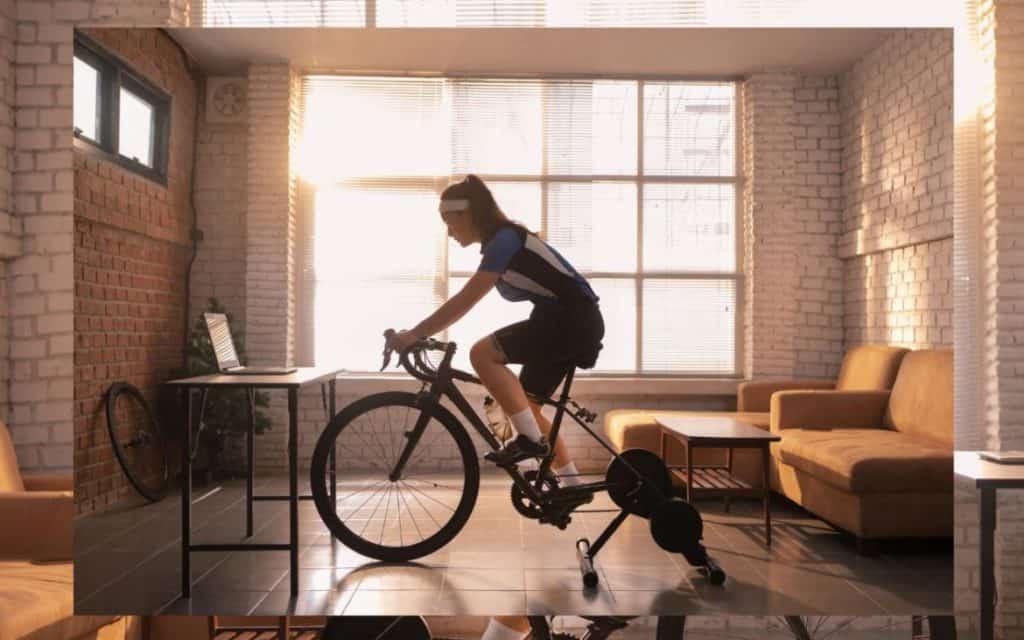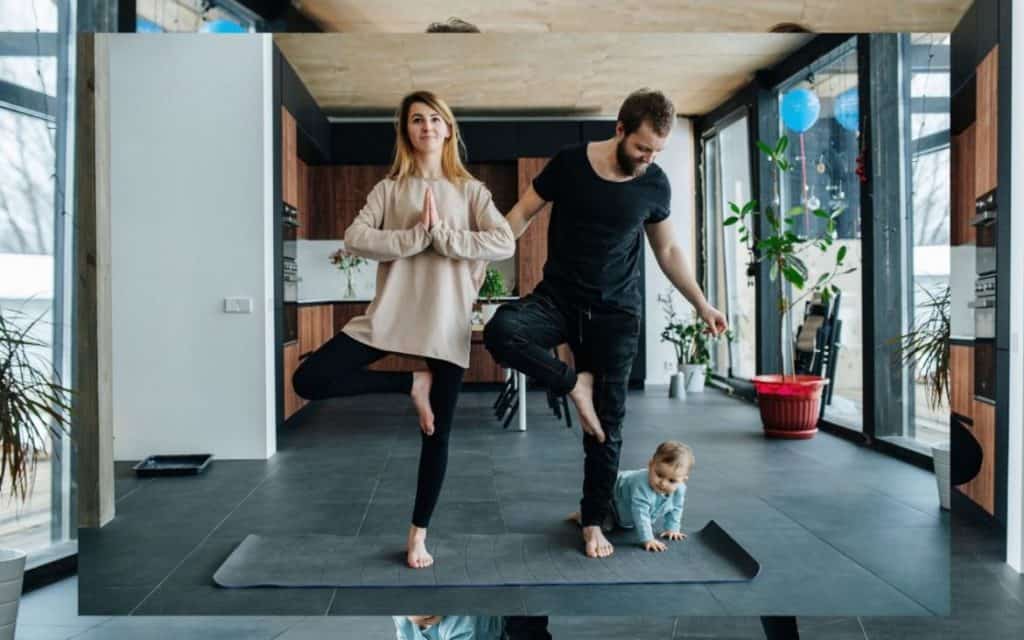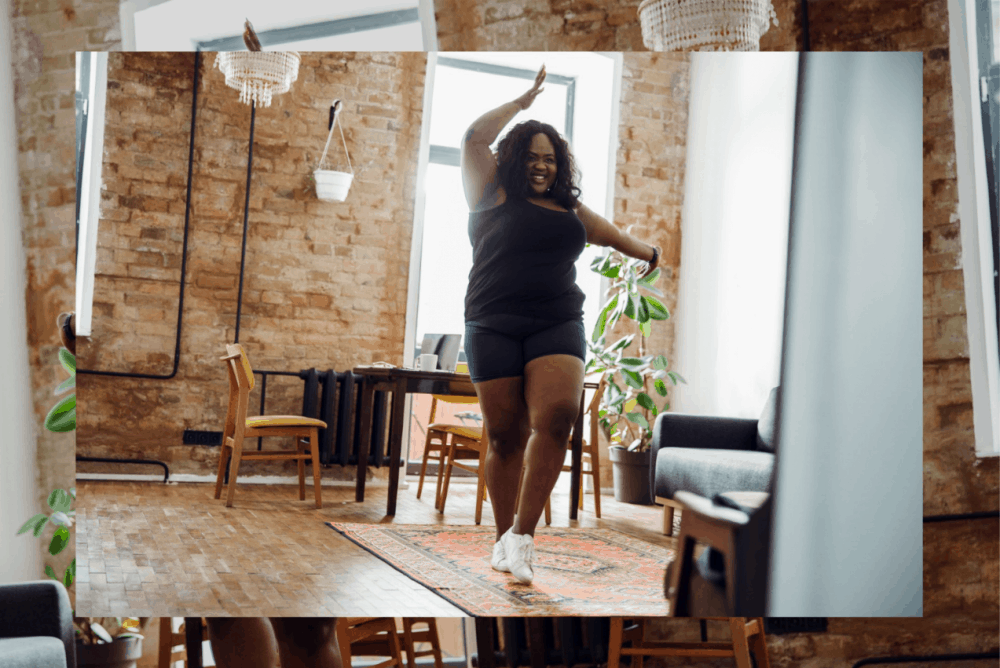
Ever noticed that as the temperature plummets, so does your motivation to exercise? You’re not alone. Research from the University of Michigan found that bad weather (read rain, or even the slightest bit of drizzle, if we’re really honest) makes us over three times more likely to delay or cancel our outdoor sweat session.
And as gyms are currently a no-go, it’s no wonder so many of us are swapping our sneakers for the sofa. A recent survey found that we also experience low mood, low libido and an increased propensity for eating unhealthy, sugary foods in winter, with 66% of participants blaming dark mornings and evenings.
But before you write off winter, know that exercise can help ward off those negative vibes. From picking the best time of day to train, to the tricks on staying motivated, this is how to channel your inner Rocky and keep working out this month.

EMBRACE THE DARKNESS
A drizzly run in the pitch black, anyone? Perhaps not everyone’s cup of tea/protein shake… ‘Ultimately, choosing the best time to train comes down to what works best for you,’ says Jamie Monk, Vitality’s clinician and physiologist. ‘If you’re not a morning person, it’s fine not to force yourself to get up and exercise. Instead, work out when you feel best and what your routine allows.’
Your end goal should also influence your exercise schedule. If you’re looking to shift a few pounds, science says you’re better off working out in the morning. ‘There is research that shows fasted exercise means that your body is more likely to use fat as fuel,’ explains Jamie. ‘But remember, weight loss comes down to a calorie deficit, so nutrition will be more important and have a bigger impact than the time of day.’
If power and strength gains are top of your training agenda, carve out time early evening to exercise. According to research published in the ‘Journal of Sport Sciences’, grip strength, vertical jumps and reaction times are at their best between 4 and 8 PM.
And, if you’re concerned all that nocturnal training will give you an unwanted energy boost before bed, you needn’t worry. A 2018 study found that exercising in the evening doesn’t impact your sleep, provided that you do it at least an hour before bedtime.

HACK YOUR BODY CLOCK FOR OPTIMUM GAINS
Not sure when is right for you to be feeling the burn? The answer lies with your chronotype, i.e. your genetic propensity for sleep, based on your internal clock. Most of us split into morning larks or night owls, and knowing which category you fall under will come down to self-awareness, says Jamie.
If you spring out of bed in the morning, chances are you’re an early riser. Luckily for you, if you’re female, a recent study found that women who worked out in the morning averaged around 20 minutes more physical activity than those who worked out at night.
And if you’re a sucker for hitting the snooze button and do your best workout after hours, you’re probably a nyctophiliac (that’s someone who loves the night, FYI). But night owls who can’t fit in an evening workout needn’t despair. There are still ways you can train yourself to be a morning person and make the most of those AM gains. Because while overriding that body clock might be challenging, says Jamie, it is just like forming any other habit – it needs to be done on a regular basis.
‘Your circadian rhythm – the rhythm of your heart across a 24-hour period – creates variations in physiological markers like heart rate, blood pressure and core temperature,’ he says. ‘This will have an effect, but the best time will be when you are compliant and consistent – they are the two main factors which will determine whether or not you’re successful in your goals.’ The message? Sticking to a routine is the most important thing. So how exactly can you motivate yourself to do that?

START OPERATION MOTIVATION
As for how to stay motivated, Jamie says that routine is key: ‘Put a non-negotiable time in the diary for exercise and stick to it. You wouldn’t ditch a work commitment if something else came up, so apply the same philosophy to your exercise.’
Removing the obstacles to training also helps, so have your workout clothes ready the night before to stop you from making excuses the next day. ‘Minimise the actions you have to take before your training to give yourself the best chance of smashing your session and remind yourself of what it feels like to finish a workout,’ advises Jamie. ‘I know I’ve never regretted doing it after the event, and I’ve only ever regretted not doing something which is good for me.’
STILL NEED A FINAL PUSH
Try turning to the experts for motivation. ‘I listen to the “High Performance” podcast, which has guests from different fields discussing performance, and also watch a documentary series on Amazon called “All or Nothing”, which follows the life of a professional sports team,’ says Jamie. ‘I get inspiration from other athletes whose routines I can emulate.’
But remember, if the motivation is running low, don’t be too hard on yourself – it happens to all of us, and sometimes you do need a rest. ‘Pushing yourself to the limits and forcing yourself to do something you don’t enjoy isn’t sustainable,’ says Jamie. ‘It’s better to listen to your body. After all, one missed session isn’t the end of the world. Just make sure you come back stronger the next day.’


